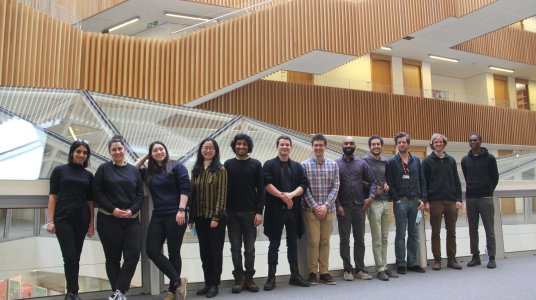Networks seminar
Welcome to the homepage of the Networks seminars, a weekly seminar series on networks, complex systems, and related topics held in the Mathematical Institute. In this year's series, we will alternate between regular talks and "fresh from the arXiv" talks (FFTA) in which we invite the author of a recently published (pre)print to discuss their work. Suggestions are always welcome!
The Networks seminar usually takes place on Tuesdays at 14:00-15:00. In line with current regulation, we are excited to announce that the seminars will now run with a new hybrid format that will allow attendees to choose whether to join our group in person in room C1 at the Mathematical Institute, or to attend remotely on Zoom. A link to the event will be made available in the schedule of upcoming talks below (for logged-in users) and via the mailing list.
To sign up to our mailing list simply send an empty email to the following address:
@email
If you would like to give a presentation at our seminar, please do not hesitate to contact the organisers Erik Hörmann and Yu Tian. The presentation can be either about your own work or on some (recent) interesting article on networks or on complex systems in general.
In case you missed any of the talks, we will also make recordings of the talks available on our youtube channel.
Upcoming Seminars
You can also find a list of all talks (with abstracts) prior to 2018 here, and the former website
of the Networks journal club at the Oxford complexity center (CABDyN) here.
Unsubscribing?
Simply send an empty email to
@email



